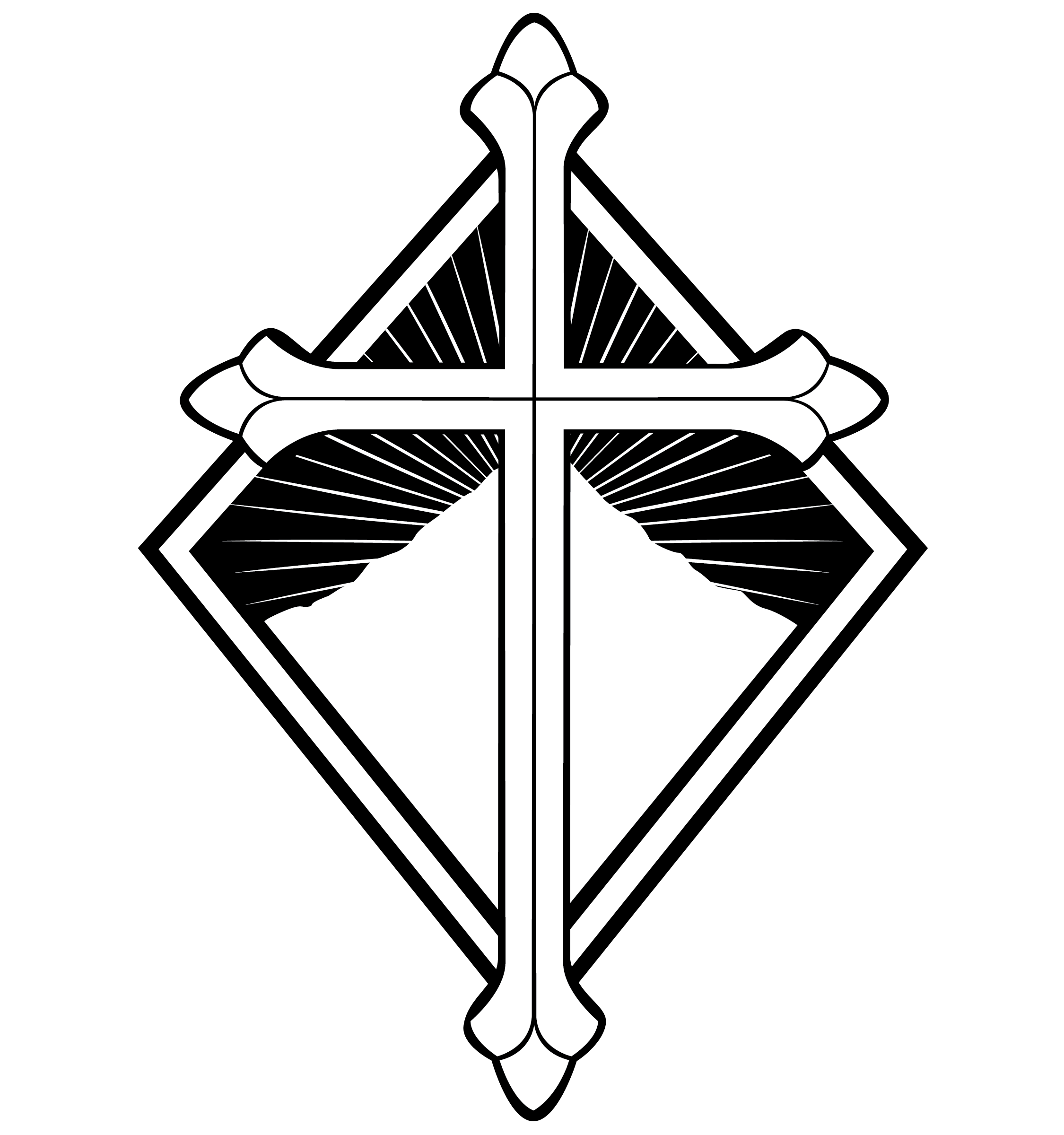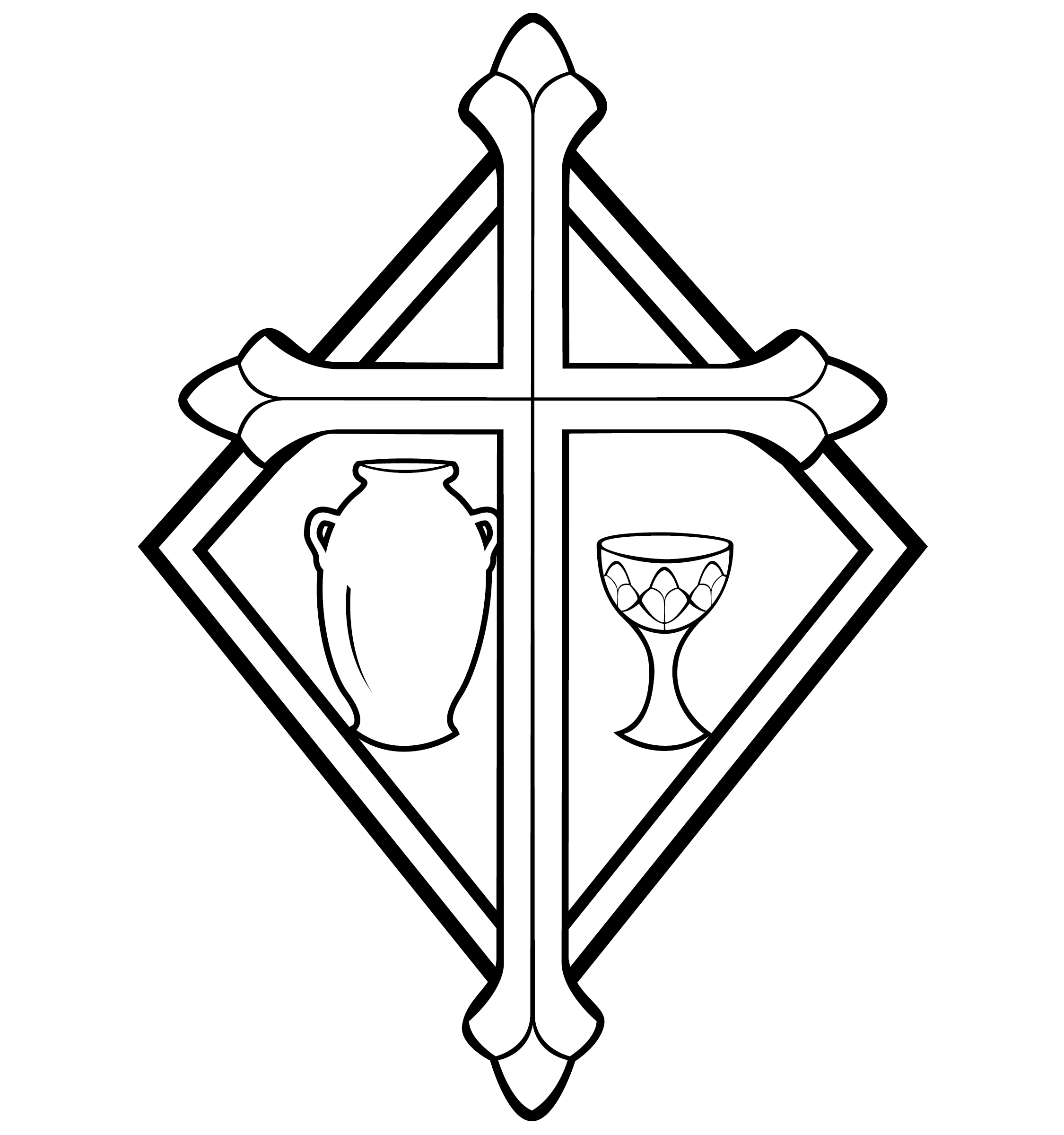A sermon on Matthew 22:34-46 for the Eighteenth Sunday after Trinity. Delivered by Pastor Caleb Strutz.
What is the center of Scripture? If you take one of the pew Bibles and let it fall open roughly to the middle, you’re probably somewhere in Proverbs or Isaiah. But the exact middle of the Bible is Psalm 118, there’s 594 chapters before it and 594 chapters after it. And the middle verse of the middle chapter is Psalm 118:8, “It is better to trust in the Lord Than to put confidence in man.”
Now that’s a decent verse and a nice sentiment. Some people think that that’s super meaningful, but, unfortunately, it’s really not. The books of the Hebrew Bible are arranged differently, so I wouldn’t chalk that up to divine providence, and, until 1826, all English language Bibles were also printed with the Apocrypha—additional non-canonical Old Testament books—which were only dropped to save on printing costs, so that would thrown off your count as well.
Tidbits aside, that’s obviously a very literal answer to the question, “what is the center of Scripture?” But we’re not talking about what happens to fall in the middle, we’re asking what Scripture is all about. And how you answer that question is going to color how you read and interpret all of it. To some, the Bible is nothing more than a collection of fairy tales. To others it’s just a dusty old rule book that can safely be discarded. But what is the Bible all about? What is the center of Scripture?
As Jesus has this back-and-forth with the Pharisees, they’re really dancing around this question and, no surprise, they give two very different answers. To the Pharisees, the Bible is about the Law and the greatest commandment. But to Jesus, it’s about the Gospel and the identity of Christ.
I. The Greatest Commandment
Now, if you look at this account in isolation, it seems pretty straightforward and not very confrontational. The Pharisees ask Jesus a question, He asks them a question, it doesn’t seem like there’s much going on.
But this account comes at the end of a chapter and a half of really fierce engagement. Earlier in this chapter we read, “the Pharisees went and plotted how they might entangle Him in His talk.” (v15) And even here we see that they’re asking this question, “testing Him.” This is the climax of an intense debate, one that’s spanned Jesus’ entire ministry. He’s butted heads with them again and again on how to interpret and apply Scripture, and now they just want to get down to it.
They’re finally getting to the fundamentals, asking Jesus how He reads the Scriptures, “which is the great commandment in the law?” At first glance, it’s hard to see the trap that’s being laid or the test that’s being given, but they’re finally addressing their issues with Jesus head-on, they’re asking Him what He thinks is the most important thing.
Jesus’ answer is pretty normal, not very controversial, most of them probably would agree with Him. He doesn’t cite any single command, but gives the summary of the Law, “You shall love the Lord your God with all your heart, with all your soul, and with all your mind.” Now, He goes on to give a second commandment, when they only asked for one, so there’s maybe an implicit criticism there, but again, this response wouldn’t have been very controversial either, “You shall love your neighbor as yourself.”
Jesus gives them an answer that’s accurate and that they would accept, He’s disarmed their trap, passed their test. But then Jesus asks them a question which exposes where they’re coming from.
This conflict is how to interpret Scripture, what it’s all about. And when the Pharisees ask that question, they’re only seeing the Law, “Which is the great commandment?” That’s what they’re concerned about, that’s how they define themselves, that’s what they think Scripture’s about, the Law. And this is the big difference between how they read Scripture and how Jesus reads Scripture.
A couple years ago, I was picking up a car from getting some work done and was chatting with the mechanic. Told him I was studying to be a pastor and he asked what church I went to and then he says, “Oh, you’re hardcore. You’re the ones that don’t let women vote.” Now that’s true and that is a distinctive thing of our congregations, that we follow the Biblical teaching on the roles of men and women in the church. And, to be honest, I was surprised that he knew that, but I was also thinking, “Man, is that how we want to be defined? Is that how we want to be known?”
How often do others define us or even we define ourselves in terms of the Law? You say you’re a Lutheran and someone confuses you with the ELCA and you say, “Oh no, we don’t have women pastors and we don’t allow homosexuality.” True. Important. But is that really how we should be defining our identity? In terms of the law, by the things we don’t do?
How often do we make the Bible all about the Law? We decry the sin out there in the world, “Wouldn’t it be better if they had Christian morals?” Is that all it’s about?
And it’s even worse on an interpersonal level. We compare ourselves to others as an excuse to make ourselves look better. “Well they do this and this and this but I don’t do that.” Defining ourselves by the law.
But if we really want to do that, we’re not gonna be in good shape. “[L]ove the Lord your God with all your heart, with all your soul, and with all your mind?” It simply can’t be done. “[L]ove your neighbor as yourself?” How can we do that when we judge them and throw them down? Defining yourself by the Law is a dead end, because sooner or later you’ll have to condemn yourself, too.
II. The Identity of Christ
Jesus recognizes the question behind the question. This isn’t really about the greatest commandment, this is about what Scripture is all about. So He asks them a question in turn. “What do you think about the Christ? Whose Son is He?”
Now, they give a perfectly accurate answer. “The Son of David.” Yeah, there’s a lot of Scripture to that point. It’s a good answer, but it’s not enough. Jesus pushes them deeper. Makes them consider what else the Scriptures say about the Christ. “If David then calls Him ‘Lord,’ how is He his Son?” Yes, the Christ is the Son of David, but that’s not all He is. They’re missing something. They don’t get who they’re supposed to be looking for. They don’t understand who’s standing right in front of them.
But we see in Jesus’ questions how He views Scripture. What He thinks it’s all about. The Pharisees are counting up the laws, but Jesus sees Himself. The heart of Scripture is not the Law, but the Christ. And who Christ is is the most important question.
Jesus raises this question but they don’t give an answer. It shuts them up. They’ve never seen anyone read Scripture like He does. And He doesn’t give them the answer either. If they really knew their Scripture, they’d have an answer. But they don’t. They can’t see what it’s all about.
Brothers and sisters in Christ, we confess the answer to Jesus’ question. We know what the Pharisees could not understand. That the Christ is not only David’s Son, but David’s Lord.
Jesus is the Son of David, that’s in His genealogy. But more importantly, Jesus is the Son of God, conceived by the Holy Spirit, born of the Virgin Mary. The Christ is a man, but He is also God. He is a descendant of David, but He is greater than David.
The Christ is a king. But a king unlike anyone would ever imagine, His kingdom is not of this world. He came to conquer His enemies, yet His sight was not set on empire or earthly ambition, but on the spiritual enemies oppressing His people, on sin, death, and hell.
This king wear a crown, but it’s made of thorns. He comes to His royal city to be rejected and killed. He reigns not from a throne in Jerusalem, but from the cross on Calvary. He bears your sin and does away with it all.
But then He showed His triumph by rising from the dead, He shows His glory as the Son of God. He ascended to the right hand of the Father in majesty and victory where He intercedes for us.
“The Lord said to my Lord, ‘Sit at My right hand, Till I make Your enemies Your footstool.’” Christ has defeated death, vanquished sin, overcome the power of hell. He is David’s Son, true man, who took your place and suffered death on your behalf. He is David’s Lord, true God, who overcame and won the victory for you.
That’s what the Bible’s about. That’s how Jesus can read Psalm 110 in this way, because it’s all about Him. That’s how we define ourselves, as blood-bought souls of our Savior, as subjects of our great King. The center of Scripture is Christ and what He has done to save us. That’s what the Bible’s all about and that’s what we are all about as individuals, as a congregation, as a church body: Christ and Him crucified. Amen.






